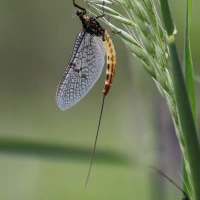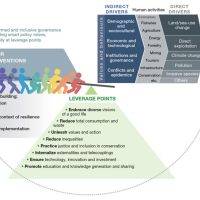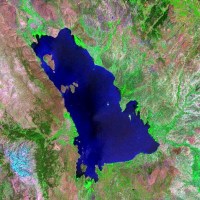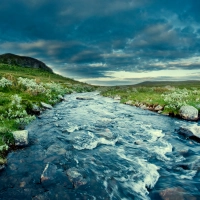Brass, Three Down: multiple pressures on Arctic Charr populations in Lake Windermere
Lake Windermere is the largest natural lake in England. Plummeting to a depth of around 64 metres, its waters support one of Britain’s largest populations of Arctic charr. Charr are cold-water fish, most commonly found in sub-Arctic regions, and their presence in Windermere is often described as a ‘relic’ of the last ice age, as sea-run populations were trapped in the lake when glaciers retreated from the area around 12,000 years ago.
Arctic charr populations in Windermere live on the southern edge of the species’ habitat niche. As a result, they are the least resilient of the salmonid species to warming lake waters due to climate change. There are two distinct populations of charr in Windermere, which live in the deep basins to the north and south of the lake, separated by a shallower ridge.
Populations of charr in both basins have declined in the last 20 years, largely as a result of warmer lake waters which hold less oxygen, eutrophication from agricultural and waste water pollution, and the introduction of invasive species such as roach, which compete with charr for zooplankton prey.
A new film – available to watch in full above – called Brass, Three Down casts a poetic and meditative eye over the place of Arctic charr in the communities local to Windermere, and the multiple pressures their populations face. The film follows a local fishermen, who fishes for charr using traditional techniques (the types of lures used give the film its name), a potter who makes the ceramic pots used traditionally to preserve the fish, and a local chef using charr in his Michelin starred restaurant.
Produced by Henry Iddon and Richard Berry, Brass, Three Down also features Dr Ian Winfield from the Centre for Hydrology and Ecology, who are carrying out long-term ecological studies on charr populations in the lake, to inform conservation and restoration strategies.














